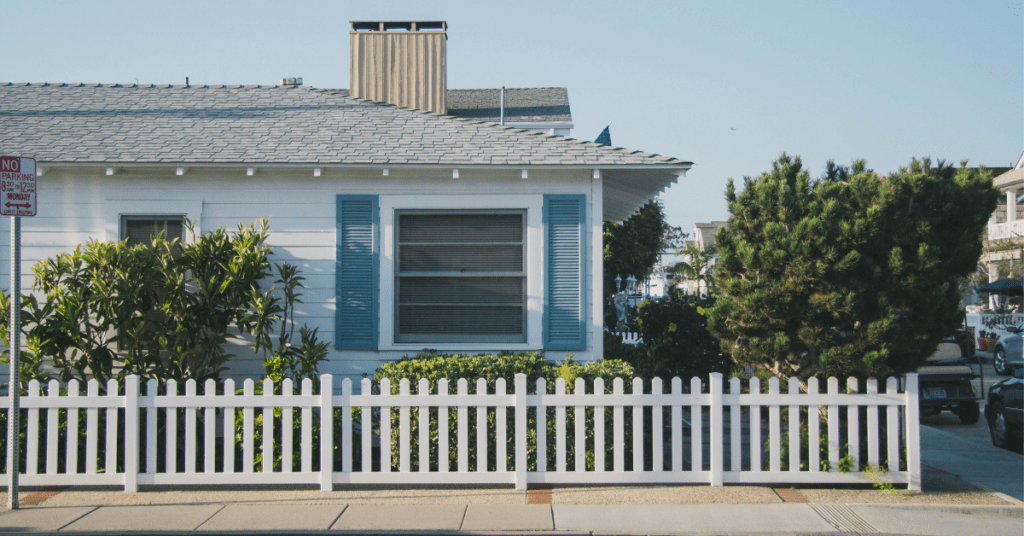I lost $10,000 at a tax auction. It’s important to know what to look out for. Keep reading, if you want to know what to watch out for and what you should expect.
Table of Contents
How I lost $10,000 at a Tax Auction
We bought a piece of land instead of a house. The tax auction we went to was for the property deed. It was a tax deed state. Instead of buying a house worth $120,000, we bought a piece of land for $25,000. It was HUGE blow to our strategy.
We did everything right except check on the Parcel Numbers and Legal Description. They gave us the address. They never told us it was not the house, but the little piece of land behind us. We just had to figure that out in our own due diligence. It was devastating.

Our Real Estate Investing Strategy drastically changed over the years. We made a serious blunder on our tax auction strategy. We now actually hunt for land deals because we can get them for a lot cheaper.
Land Investing has been one of the main ways my wife has been able to quit her job. Get the inside scoop on land investing by clicking here.
What is a Tax Auction?
A tax auction is an important revenue source for counties. In every county, there are property taxes. It’s a way to pay for infrastructure, city employees, schools, sewage, and etc.
Typically, properties generally have a mortgage or deed of trust on the property. Most times the bank will pay the property taxes. This is because property taxes take a 1st lien priority.

Most banks set it up that you have to put property taxes in escrow and the bank will make the payment for you. If you don’t pay, the county will sell either the lien to your property or the property itself depending on state rules.
Essentially, investors and counties work together to keep the county operational. The investor wins because they are able to get a property and profit from the proceeds.
The county wins because a non-performing asset is now going to get revenue from the investor. The county uses these funds to pay for infrastructure, schools, etc.
What is a Tax Deed vs a Tax Lien State
Each state has rules in place to help owners. They need to get fair warning that they will lose their property. They will usually send mail for requests to pay taxes.
Depending on the state it would a tax deed or a tax lien state. A tax deed state just means that they will give you the deed to the property itself. If you are looking to resell the property, this is the one you want.
A tax lien state bids based on the interest rate. You don’t get the property, you get ownership to the lien. Essentially, you will get a higher interest rate for your investment. This can be good if you want an interest rate higher than your 401k plan.
The idea is that you will be able to get the lien for a lower investment and potentially foreclose on the property. That is an additional cost, but it can be worth your time.
Some states have a blend of tax deed and tax lien states. They usually call it a redeemable state. Typically you get the deed (ownership) to the property. The owner can come back and redeem the property by paying your investment and an additional interest.
How I lost $10,000 doing a tax auction in depth story
So, I was involved with two other people to essentially flip houses. We were in real estate and knew about tax auctions. We knew that we needed to be in a tax deed state. We wanted ownership from the beginning.
We went over to Pennsylvania because it was a tax deed state. We found out the rules and when the auction would be held. We got a list of potential properties that would be available for auction.

We initially thought the biggest hurdle would be that we wouldn’t be able to see the insides of the houses. So, we thought let’s assume that it will be a full rehab. We just came up with a simple formula to come up with our bids.
After Repair Value (ARV) – Our Profit – Full Rehab = Our Maximum Offer
-Our quick calculation formula
It was simple enough. Generally, It would look like this. If we thought a property could be sold quickly for $100,000. We would do $100,000 (ARV) – $25,000 (Our Profit) – $60,000 (Full Rehab) = $15,000 (Our Maximum Offer).
The formula is imperfect because it doesn’t account for Realtor fees, transfer tax, and other smaller fees. Generally, though we figured that most properties won’t need a full rehab. So overall, we should be okay.
We went to the auction prepared with our bids. We ended up buying a couple different properties. We made money off of all of them except for one major dud.
One of the properties that we bought wasn’t the house but the piece of land behind the house. It was right next to the back alley and it had a shed. They gave us the Legal description, Account/Parcel Number, and Address.
I knew that they used the Legal Description for Title and the Account/Parcel number for taxes. We used the address to figure out the property. That one mistake messed us up because we bid way to high for the property.
It’s interesting because land was so much less competitive in these auctions. We could have probably made a lot of money just focusing on these properties. Years later, land is how I make passive income streams and get chunks of money.
Check out the Land Investing: Land Flipping 101 article by clicking here. It’s just much better than flipping houses.
What Should I be looking for to make sure that I don’t lose $10,000
If you go to the county, make sure you look at the legal description, account number, or parcel number. This will give you extra information about the property.
Find out the boundaries on the property. Just know are you buying. The counties won’t make any warranties and it’s buy at your own risk.
Have a strategy in place on how you will bid on each property. Have your max offers before you go to the auction. This is important because the auction atmosphere can make you easily bid more than you should for a property.
Be careful. Know the expectations. Come with a plan. Do better due diligence than what I did when you go to a tax auction.
Frequently Asked Questions:
What are tax auctions?
Tax auctions are a great way to pick up property inexpensively. You will need to do due diligence. Make sure you know the rules about the auction.
Are tax deeds better than tax liens?
Tax deeds are better than tax liens. You get the property from the get go. A tax lien does not. You get rights to the lien.
What should I look for at a tax deed auction?
Check to make sure you know the location, potential repairs, costs, and rules. Each tax deed auction has different rules.
